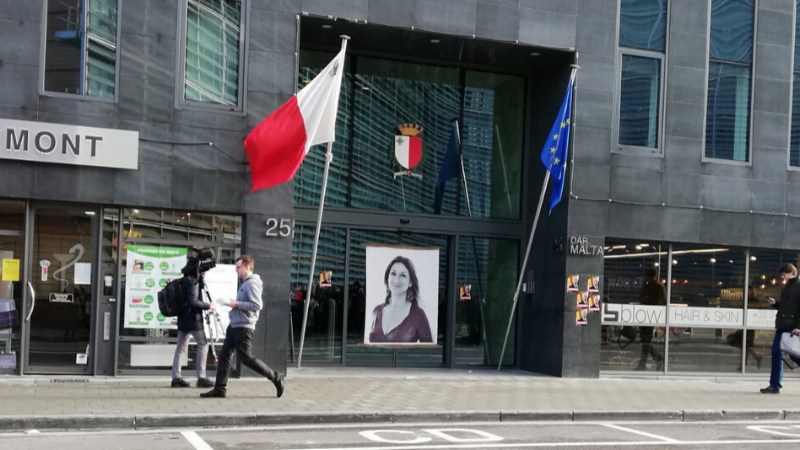Maltese law academic Justin Borg-Barthet on Tuesday published an academic paper on the urgent reform of EU defamation law needed, calling for a change in existing legislation and the introduction of new instruments.
The work of Borg-Barthet, of Aberdeen University’s law department, draws attention to the ways in which jurisdictional rules “had been deployed to suppress factual reporting by media entities, removing entire online records of suspected transnational financial crime involving governmental actors and their business associates”.
The author refers to Pilatus Bank as an example of a company that used SLAPP lawsuits to silence the Maltese media. The bank succeeded in removing a number of stories published by the independent media in Malta leading to the public record being altered without the public’s knowledge.
My working paper on the reform of EU defamation law will be available later today. The paper calls for the reform of existing legislation and introduction of new instruments.
The work is dedicated to the memory of #DaphneCaruanaGalizia. Justice for Daphne demands legal reform. pic.twitter.com/DihxrX0Mnr
— Justin Borg-Barthet (@JustinBBarthet) August 18, 2020
His work is especially significant for Malta, where Strategic Lawsuits Against Public Participation (SLAPP) threats have been highlighted by the Committee on Civil Liberties and Justice of the European Parliament (LIBE) as one of Europe’s ‘problematic practices’.
The author said that in order to fight these challenges, the reform required in EU legislation was “extensive”, so these tactics would have no effect on undermining freedom of expression in member states at a time when the rule of law and democracy was already being challenged.
Suggestions for reforms include revisiting the relationship between the rights of pursuers and defendants in defamations cases to “remedy existing imbalance”, and for jurisdiction to be grounded in the defendant’s country, unless the parties agree otherwise, in order to diminish the chances of forum shopping.
Greater predictability on the outcomes of choice of law processes and the content of national law is also needed to dissuade meritless litigation intended to suppress speech, he wrote.
Borg-Barthet dedicated the work to the memory of journalist Daphne Caruana Galizia who was facing over 40 pending libel cases before she was killed in 2017 most to which were filed by government officials and continue posthumously, a process described by her son Matthew as a “never-ending type of torture”.
The Shift and other Maltese media has also faced a number of SLAPP threats, the most recent coming from Turab Musayev, the Azerbaijani-British National who was SOCAR Trading’s representative on the Board of Electrogas. The Shift had made the threatening letter public and stated that such threats on behalf of Musayev were unacceptable.
“The net effect would be to provide journalists with a robust system of protection from the sort of litigious techniques which chill freedom of expression, and which isolate and endanger the few who resist overwhelming odds posed by the unscrupulous abuse of tools which remain readily available to prospective litigants,” Borg-Barthet concluded.
In May, proposals made by the academic, based on his research, were put forward to the European Commission, with the support of over 25 press freedom organisations.
The letter recommended short to medium term measures proposed to the Directorate-General of Justice and Consumers, Pia Lindholm.













